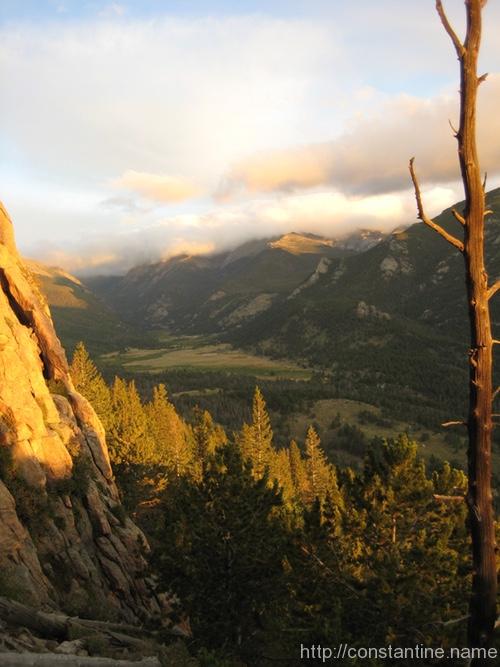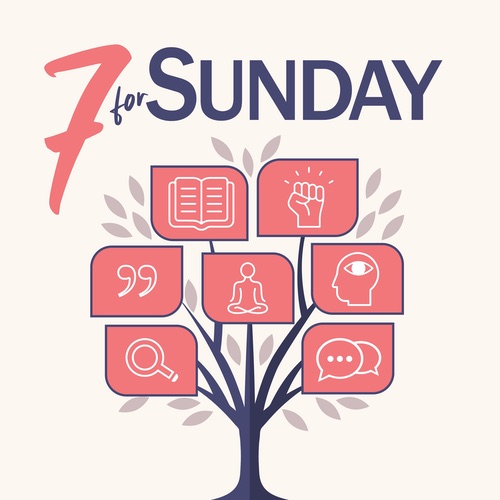Reading time: About 6 minutes, 1300 words.
Get 7 for Sunday in your inbox. → Subscribe here.
This issue is https://7forsunday.com/84


Reading time: About 6 minutes, 1300 words.
Get 7 for Sunday in your inbox. → Subscribe here.
This issue is https://7forsunday.com/84

Opinions are strongly divided about Pressfield's concept of Resistance. And yes, some days I do find myself over in the Resistance-is-bullshit encampment thinking: No, Resistance is not real. It is important and meaningful for me to be spending my time rearranging these deck chairs, polishing this silverware, sorting these shelved books, getting the edge of my lawn just so, tagging and organizing all these blog posts... And then, "Curse you, Resistance!!"
For myself, I was years into the act of having a practice before I even thought about its efficacy as a strategy to overcome my own Resistance. Resistance was (and is) a given for me. It wakes up with me. I know I will have to face it every day, and I know it will never diminish or relent or go away.
~ Steven Pressfield from, https://stevenpressfield.com/2024/02/a-practice-and-resistance/
I've been looking for a word to replace "professional" in my regular usage. (Please hit reply if you've got one.) I've given up on changing how others perceive the words I say; People take professional to first refer to getting paid for one's efforts. But by professional I mean—and this is the way Pressfield uses the word—competent, skilled, assured, and approaching mastery. Steve Martin is talking about that sort of professionalism, not about money, when he says, "be so good they can't ignore you."
Why do I care? Because with the concept of getting paid pushed aside, then professionalism can be used as a razor for cutting through resistance. I simply consider my practices (left for another day is the discussion of whether or not it works to have more than one practice) and ask the question: Would a professional do this?
Yes, a professional would take time off for this restorative activity. No, a professional would just ignore these deck chairs. Yes, a professional would spend 3 days writing software tooling so 10 years from now this stuff is still organized and useful. No, a professional would not stoop to that level. Yes, a professional would totally get this part pitch perfect.
We are all just walking each other home.
~ Ram Dass
I write here a great deal about journaling. It's not lost on me that in a way, what I write here is a sort of journal. I began by creating small journals for specific trips where selecting the journal itself was part of the trip preparation. Soon I began using dedicated journals and started writing when I felt like it. The more I wrote, the more I appreciated the practice. I'm long convinced that the mind is for having ideas, not for holding them. In fact, often I use my journals to chase things out of my mind; get thee gone flittering woes and flocking shoulds!
Lately, I’ve been dipping into my personal archives – specifically, my old journals – to reacquaint myself with the person I was 20 years ago, doing remote fieldwork in the Canadian Arctic for eight weeks each summer. I’m writing a book, you see, about my experiences as a field scientist, and though my memories of that time seem strong, I’m still surprised by some of what appears in my journals. For example, I didn’t remember arriving in the field as early as I did one year, or the level of frustration I had when some of my equipment didn’t work. My journals bring these events back to me, in full colour and precise detail, allowing me to add lyrical descriptions and scenes to my book.
~ Sarah Boon from, https://psyche.co/ideas/learn-the-art-of-journaling-and-archive-your-life
One day—yes I could look it up—I sat down and figured out a way to be able to review all my handwritten journals based on the dates of the entries. (Relax, you can see there's no wall of text coming. I'm not going to explain it.) Now, when I sit down to journal, I can flit back to any point. I don't know how to explain how powerful that is. I know me best. Absolutely, 100%, no exaggeration, no wiggle room, the big lessons I've learned through my own hard work of listening(!), reflecting, journaling and reviewing said journaling.
Reading furnishes the mind only with materials of knowledge; It is thinking that makes what we read ours.
~ John Locke
If I were forced to choose—in some trolley-car, false dichotomy, morality scenario—whether to give up meditation or journaling, I'm pretty sure I'd give up journaling before meditation. Or at least, that's the lie I'd tell you. One's meditation practice will inevitably settle into some specific physical form. The stillness is one of the keys. I was once sat (in the "having something done to you" sense) in a particular position, in the vein of a particular tradition, and now after 25 years meditating there, that's the position I will forever assume. Still, even now for me it's an uncommon position, it's an uncommon point of view, and it's an uncommon intention. Frankly, in the beginning it was simply physical agony. Now, it doesn't make sense to not do it. Which is right, then or now?
A lot of people said meditation is like jogging or like lying in the sun on the beach. This shows a huge misunderstanding about what meditation is. Meditation is a way to go within, all the way within to the deepest level of life, the transcendence, the absolute, the totality and reality, and experience that. The human being is built for it.
~ David Lynch from, https://the-talks.com/interview/david-lynch
The more I read, the more I'm certain that the "now" is right.
The world […] is indeed a strange and deeply mysterious place, forever changing and remaking itself anew. But this is not a novel condition, our world hasn't only recently become bizarre and temporary, it has been so ever since its inception, and it will continue to be such until its end—mystifying and forever in a state of flux.
~ Nick Cave
On a random rainy day, I sat in seiza on the concrete, barefoot, gazing into our back yard. Everything was uniformly 53 degrees as I sat down with a mug of steaming broth. I sat under cover of the patio, but open otherwise to the sound of light rain, the gurgle of water in the downspouts, and the occasional drafts of cool air. Previous sunny days, and the current inch of rain had create an entire world of verdant green before me. The world looks different when your eyes are closer to the ground. Time passed. Some light came in.
There, in the Zen-like supremacy of the moment, on the road and adrift in this world, the nicotine would enter my bloodstream and with a blissful rush of pure meaning God would declare Himself to me – just as He did to you, Dee, on your balcony, at 21.49, on that rainy evening in Rosario, Argentina. That five minute interlude, puffing on a cigarette, in the deranged chaos of our lives – you on your balcony and me in some alley in some foreign city – was, to paraphrase Leonard Cohen, the crack where the light came in.
~ Nick Cave from, https://www.theredhandfiles.com/how-do-you-feel-about-god-really/
For countless eons, all of our kind have wondered about, sought firsthand and then shared, experiences of such interludes. Are they experiences of the divine? Self-hypnosis? Enlightenment? Semi-sleeping states? Spirituality? Meditation? …and does it actually matter what we each call them? I simply hope you have your own occasional interludes.